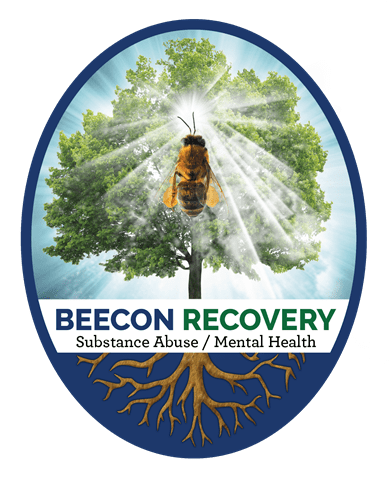The Importance of Family Support
Family support plays a crucial role in the recovery journey. At Beecon Recovery, we understand the profound impact that family involvement can have on the success of addiction recovery and mental health treatment.
Enhancing Treatment Effectiveness
Research shows that individuals in recovery with strong family support are more likely to succeed in their long-term recovery journey (Relief Recovery Center). Family involvement in rehab enhances the effectiveness of treatment and creates a more supportive environment, significantly improving the overall success of the recovery process.
| Benefit of Family Support | Impact on Recovery |
|---|---|
| Emotional Stability | Provides a nurturing environment crucial for overcoming addiction |
| Encouragement | Boosts motivation and commitment to recovery |
| Supportive Environment | Enhances the effectiveness of treatment |
Family members can participate in therapy sessions, educational workshops, and support groups, which helps them understand the challenges faced by their loved ones and learn how to provide the best support possible. This involvement not only strengthens the individual’s recovery but also fosters a healthier family dynamic.
Empowering Families in Recovery
At Beecon Recovery, we recognize the profound impact addiction has on families. We offer a comprehensive suite of support services designed to empower families throughout the recovery journey (Relief Recovery Center). Family involvement in rehab is a cornerstone of lasting recovery, providing emotional stability, encouragement, and a nurturing environment crucial for overcoming addiction.
Continued family involvement after rehab is essential for preventing relapse and promoting long-term sobriety. By fostering a strong support system and maintaining open communication, families can play a crucial role in their loved one’s ongoing recovery.
For more information on how family support can enhance treatment effectiveness and empower families in recovery, explore our articles on what to expect during each phase of your treatment journey and using case management to navigate multiple levels of care.
By understanding the importance of family support, we can work together to create a supportive and nurturing environment that promotes long-term recovery and mental health.
Performance Improvement in Health Services
Performance improvement in health services is essential for ensuring that patients receive the highest quality of care. By monitoring outcomes and implementing initiatives, we can enhance the effectiveness of our addiction recovery and mental health treatment programs.
Monitoring Outcomes for Improvement
Monitoring outcomes is a critical component of performance improvement. It involves regularly assessing the effectiveness of our services and making data-driven decisions to enhance patient care. According to the NCBI Bookshelf, outcomes monitoring is vital for improving productivity and care in the healthcare industry.
To effectively monitor outcomes, we identify specific performance indicators that reflect the success of our treatment programs. These indicators are measured regularly to track progress and identify areas for improvement. For example, we might measure the percentage of patients who maintain sobriety for six months after completing our outpatient treatment program.
| Performance Indicator | Measurement Frequency | Target Outcome |
|---|---|---|
| Sobriety Maintenance (6 months) | Quarterly | 80% |
| Patient Satisfaction | Monthly | 90% |
| Treatment Completion Rate | Annually | 85% |
By analyzing these indicators, we can determine whether our initiatives are leading to the desired improvements. This continuous feedback loop allows us to make necessary adjustments to our programs, ensuring that we provide the best possible care for our patients.
Initiatives by Health Organizations
Health organizations play a crucial role in promoting performance improvement and outcomes monitoring. The U.S. Department of Health and Human Services, through the Center for Substance Abuse Treatment (CSAT), has sponsored and funded major initiatives to develop performance indicators and information systems for substance abuse treatment (NCBI Bookshelf).
One such initiative is the National Treatment Outcomes Monitoring System (NTOMS), which provides periodic reporting on the access to and effectiveness of drug abuse treatment. This system uses a nationally representative sample of clients to gather data, helping to identify trends and areas for improvement (NCBI Bookshelf).
At Beecon Recovery, we align our efforts with these national initiatives to ensure that our programs meet the highest standards of care. By participating in these initiatives, we can benchmark our performance against national data and continuously strive for excellence in our services.
For more information on how we support long-term recovery through our outpatient programs, visit our articles on what is the difference between php iop and opt in addiction treatment and how to maintain progress between outpatient sessions.
By focusing on performance improvement and outcomes monitoring, we can ensure that our addiction recovery and mental health treatment programs are effective, efficient, and patient-centered. This commitment to excellence helps us support our patients on their journey to long-term recovery.
Benefits of Structured Sober Housing
Structured sober housing plays a crucial role in supporting individuals on their recovery journey. These environments provide the necessary structure, accountability, and support to help individuals maintain sobriety and build a foundation for long-term recovery.
Supporting Recovery Journey
Living in structured sober housing during outpatient treatment is associated with a greater likelihood of satisfactory discharge and longer lengths of stays in outpatient treatment (NCBI). Participants often report needing additional structure and recovery support, which these environments provide. The benefits include:
- Structure and Accountability: Sober housing offers a structured environment that helps individuals develop and maintain routines. This structure is essential for those in recovery, as it provides a sense of stability and predictability.
- Life and Coping Skills: Residents have the opportunity to learn and practice essential life and coping skills. These skills are crucial for managing stress and avoiding relapse.
- Social and Emotional Support: Living with others who are also in recovery provides a built-in support system. Peer support is invaluable for sharing experiences, offering encouragement, and fostering a sense of community.
Building Recovery Capital
Recovery housing is not just about providing a place to live; it also helps individuals build “recovery capital.” Recovery capital refers to the resources that individuals bring to their recovery, which can be enhanced through supportive environments like sober housing. These resources can be categorized into various domains:
- Physical Resources: Safe and stable housing, access to healthcare, and financial stability.
- Social Resources: Supportive relationships with family, friends, and peers in recovery.
- Human Resources: Education, employment skills, and personal development.
- Cultural Resources: Engagement in community activities and cultural practices that support recovery.
Studies have shown that recovery housing is associated with positive outcomes, including abstinence from alcohol and drugs, gains in employment, and decreased involvement in the criminal justice system (NCBI). By addressing concrete housing needs, recovery housing can directly or indirectly contribute to increases in recovery capital, benefiting individuals in outpatient treatment.
| Benefit | Description |
|---|---|
| Structure and Accountability | Provides stability and routine |
| Life and Coping Skills | Teaches essential skills for managing stress |
| Social and Emotional Support | Offers a built-in support system |
| Physical Resources | Safe housing, healthcare access, financial stability |
| Social Resources | Supportive relationships |
| Human Resources | Education, employment skills |
| Cultural Resources | Community engagement |
For more information on how general outpatient (OPT) supports long-term recovery, visit our articles on what is the difference between php iop and opt in addiction treatment and how to maintain progress between outpatient sessions.
Outpatient vs. Inpatient Care
When considering addiction recovery and mental health treatment, it’s important to understand the differences between outpatient and inpatient care. Each approach has its own set of benefits and considerations, and the choice between them can significantly impact recovery outcomes.
Effectiveness of Outpatient Treatment
Outpatient treatment programs offer a flexible and supportive environment for individuals seeking recovery. Studies have shown that outpatient care can lead to better detoxification completion rates and abstinence rates compared to inpatient care for adults with alcohol dependence, particularly in the short term. This suggests that outpatient programs can be highly effective in the initial stages of recovery.
| Treatment Type | Detox Completion Rate | Abstinence Rate |
|---|---|---|
| Outpatient | Higher | Higher |
| Inpatient | Lower | Lower |
Outpatient care also allows individuals to maintain their daily routines and responsibilities, which can be crucial for those who need to continue working or caring for their families. This flexibility can make outpatient treatment a more viable option for many people.
However, it’s important to note that the effectiveness of outpatient treatment can vary depending on the severity of the addiction. In a randomized controlled trial, inpatient treatment followed by six months of outpatient care showed a statistically significant advantage in the percentage of days abstinent in the first month post-treatment. This advantage decreased over time, with no significant difference by month six (NCBI Bookshelf).
Factors Influencing Treatment Success
Several factors can influence the success of outpatient treatment programs. Understanding these factors can help individuals make informed decisions about their recovery journey.
-
Severity of Addiction: The severity of the addiction plays a crucial role in determining the most appropriate level of care. For individuals with high-severity alcohol use disorder, inpatient treatment may initially offer more significant benefits. However, outpatient care can still be effective, especially when combined with ongoing support and monitoring.
-
Support Systems: Having a strong support system is essential for successful recovery. Outpatient programs often encourage the involvement of family and friends, which can enhance treatment effectiveness. Empowering families in the recovery process can provide additional motivation and accountability for individuals in treatment.
-
Engagement with Self-Help Groups: Participation in self-help groups, such as Alcoholics Anonymous, can significantly impact recovery outcomes. Inpatients have been found to have greater engagement with these programs in the year following treatment compared to outpatients. Encouraging outpatient participants to attend self-help groups can improve their chances of long-term success.
-
Individualized Treatment Plans: Tailoring treatment plans to meet the unique needs of each individual is crucial. Outpatient programs offer the flexibility to adjust treatment goals and strategies based on progress and changing circumstances. This personalized approach can enhance the overall effectiveness of the treatment.
-
Access to Resources: Ensuring that individuals have access to necessary resources, such as counseling, medical care, and support services, is vital for successful recovery. Outpatient programs should provide comprehensive support to address the physical, emotional, and psychological aspects of addiction.
For more information on the differences between outpatient and inpatient care, visit our article on what is the difference between php iop and opt in addiction treatment. Additionally, understanding the role of clinical assessments in determining the appropriate level of care can further guide individuals in their treatment journey (how clinical assessments determine your level of care).
By considering these factors and understanding the effectiveness of outpatient treatment, individuals can make informed decisions about their recovery path. Whether choosing outpatient or inpatient care, the goal is to provide the best possible support for long-term recovery.
Outpatient Treatment Programs
Outpatient treatment programs play a crucial role in supporting long-term recovery for individuals dealing with addiction and mental health issues. These programs offer a range of benefits, including flexibility and various levels of care, making them an effective option for many.
Flexibility and Support
Outpatient treatment allows individuals to remain at home during treatment or at a sober living home connected with the program. This enables them to continue working and stay close to family and friends, which can be vital for emotional support and maintaining a sense of normalcy. Outpatient treatment centers usually conduct Intensive Outpatient Programs (IOP) at night or in the early morning to help participants maintain their normal schedules outside of treatment.
| Benefit | Description |
|---|---|
| Remain at Home | Allows individuals to stay in their own homes or sober living homes. |
| Continue Working | Enables participants to maintain their jobs and daily responsibilities. |
| Stay Close to Family | Keeps individuals near their support systems. |
| Flexible Scheduling | IOP sessions are often held at convenient times. |
Outpatient drug rehab can last 3 to 6 months, similar to inpatient treatment, but can extend well over a year for more severe cases. This makes it a helpful option for individuals with mild substance use disorders or as part of a long-term treatment plan (Addiction Center).
Levels of Care
Outpatient treatment is generally considered less restrictive than inpatient programs, offering two primary levels of care: Partial Hospitalization Programs (PHP) and Intensive Outpatient Programs (IOP).
- Partial Hospitalization Programs (PHP): PHP focuses on stabilizing behaviors in early recovery. It is suitable for individuals who need a high level of support but do not require 24-hour supervision. PHP typically involves attending treatment sessions for several hours a day, multiple days a week.
- Intensive Outpatient Programs (IOP): IOP allows patients to return to their daily lives by attending services for 3 hours per day, 3-5 days a week. This level of care provides flexibility for work and life needs while promoting long-term recovery.
| Level of Care | Description | Frequency |
|---|---|---|
| PHP | Stabilizes behaviors in early recovery | Several hours a day, multiple days a week |
| IOP | Allows return to daily life with structured support | 3 hours per day, 3-5 days a week |
Outpatient programs can be effective for substance use disorder treatment, especially when detoxification is not required, and continuous monitoring is not needed. Treatment is most successful when clients remain in a program for more than 90 days and do not exit against medical advice or earlier than recommended due to administrative reasons (Nature).
For more information on the different levels of care and how they can support your recovery journey, visit our articles on what is the difference between php iop and opt in addiction treatment and how clinical assessments determine your level of care.
Predictors of Treatment Success
Understanding the predictors of treatment success is crucial for those seeking long-term recovery from substance use disorders. At Beecon Recovery, we emphasize the importance of attending self-help groups and setting treatment goals as key factors in achieving successful outcomes.
Attending Self-Help Groups
Attending self-help groups is one of the primary predictors of successful outcomes in outpatient substance use disorder treatment. Research indicates that clients who attend six or more self-help group sessions during their treatment are more likely to remain in treatment for over 90 days and successfully complete their program (Nature). These groups provide a supportive environment where individuals can share their experiences, gain insights, and receive encouragement from others who are on a similar journey.
| Number of Self-Help Group Sessions | Success Rate (%) |
|---|---|
| 0-5 | 45 |
| 6+ | 75 |
By participating in self-help groups, clients can build a strong support network that extends beyond their formal treatment program. This network can play a vital role in maintaining sobriety and preventing relapse. For more information on how to maintain progress between outpatient sessions, visit our article on how to maintain progress between outpatient sessions.
Setting Treatment Goals
Setting clear and achievable treatment goals is another significant predictor of success in outpatient programs. Goals provide clients with a sense of direction and purpose, helping them stay focused on their recovery journey. According to a study conducted between August 2022 and May 2023, setting goals was found to be one of the most predictive factors of success in outpatient substance use disorder treatment (Nature).
Effective goal-setting involves identifying specific, measurable, attainable, relevant, and time-bound (SMART) objectives. These goals can range from attending a certain number of therapy sessions to achieving milestones in personal development. By regularly reviewing and adjusting their goals, clients can track their progress and stay motivated throughout their recovery.
| Goal Type | Example |
|---|---|
| Short-term | Attend 3 therapy sessions per week |
| Long-term | Maintain sobriety for 1 year |
At Beecon Recovery, we work closely with our clients to help them set and achieve their treatment goals. Our comprehensive approach includes linking clients to primary care providers (PCPs) and supplemental nutrition assistance programs (SNAP) to support their overall well-being during treatment. For more details on what to expect during each phase of your treatment journey, visit our article on what to expect during each phase of your treatment journey.
By focusing on these predictors of treatment success, we aim to provide our clients with the tools and support they need to achieve long-term recovery. For more information on how general outpatient (OPT) supports long-term recovery, explore our resources on what is the difference between php iop and opt in addiction treatment and transitioning from inpatient to outpatient: what you need to know.






